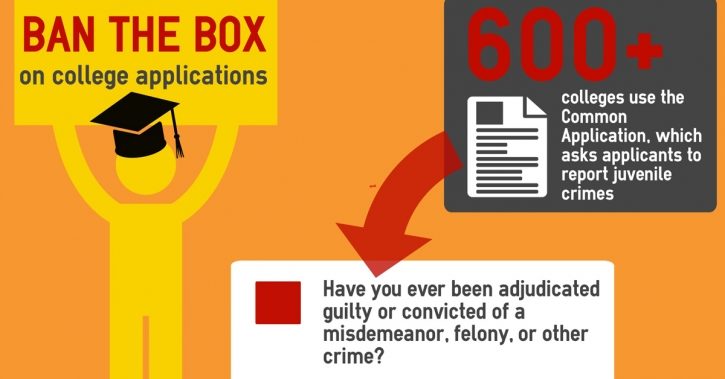Prior to my incarceration, I was oblivious to the collateral consequences a person faces upon their release from prison and attempt to re-enter society, and I use that term loosely, re-enter what? A society that we were already a part of, but not really? The 13th Amendment is real people (don’t get me started, that’s another blog)!!
According to PrisonFellowship.org, there are 50,000 legally mandated collateral consequences including housing, employment, immigration and public assistance that a person will face. The “box” as we call it – that one that asks if you have ever been convicted of a felony – is daunting. Checking this box can lead to possible rejection. Everytime I look at it, I am discouraged and even though I have paid my debt to society and done my time as they say- it is there, it is there to filter people like me out and it is triggering: It brings back all of these issues and feelings of attempting to navigate a system that has pushed you out. A system that says equal rights for all, except you and you. Where as you attempt to navigate it all and find your footing, all of these boxes and exclusions make it impossible. A form of systemic institutional racism, yeah I said it! And they have the nerve, the audacity to wonder why people go back to prison. Umm…maybe it’s because we can’t find jobs or housing since this “box” appears everywhere, including these employment and housing applications.
One of the other places this little box also appears is on college applications. The Common App, which is used by nearly 700 colleges including Historically Black Colleges and Universities (HBCUs) and many private California Campuses, have this little box too. Checking this box can potentially bar you from receiving Financial Aid and student loans.
While in California there is legislation currently in the works in an attempt to dismantle these collateral consequences, via AB 1008 which seeks to ban the box on employment applications statewide, it hasn’t transferred into higher education.
In the state of Louisiana however, (yes Louisiana) the box has been removed from college applications, becoming the first state to do so via House Bill 688, as stated in brproud.com, “House Bill 688, which prohibits public colleges from asking questions about criminal history (except sexual assault) in admissions, received final passage in the House of Representatives Monday, June 5th. Currently 40% of public colleges in Louisiana ask students about felony convictions on their admissions applications. A recent study by College and Community Fellowships found that 2 out of 3 people that select yes to the criminal history question do not finish the college application. This bill will encourage more people with convictions to finish the application process and access higher education opportunities.” The new law took effect on August 1. This was led by the efforts of a formerly incarcerated mujer in higher education, Syrita Steib-Martin, who through her research and personal experience in navigating higher education made this win possible. Our experiences matter and as I’ve said before, if I don’t have a seat at the table, I’m bringing my own damn table! Syrita, you brought it alright! and in that, you have brought us all with you. Gracias.
Nothing about us, without us! Syrita Steib-Martin, we see you, and the mujeres at La Comadre and A New Way of Life Re-Entry Project salute you in this monumental win, and can only hope that our beautiful Golden State will follow suit. Girl, can I hit you up and make this happen here in Cali? Like, fo’ real fo’ real!
Read more here.
Lily Gonzalez
She is a recent cancer survivor and through some years of adversity has risen above all her recent challenges. Lily is a Homeboy Industries graduate and full-time student at California State University, Northridge. She has continued to live her life in South Los Angeles with her two children. She works to show her children that anything can be done with hard work, determination and perseverance even in the face of unimaginable challenges. Her daughter is in a Charter School and she is working to find the right Preschool program for her youngest child.

